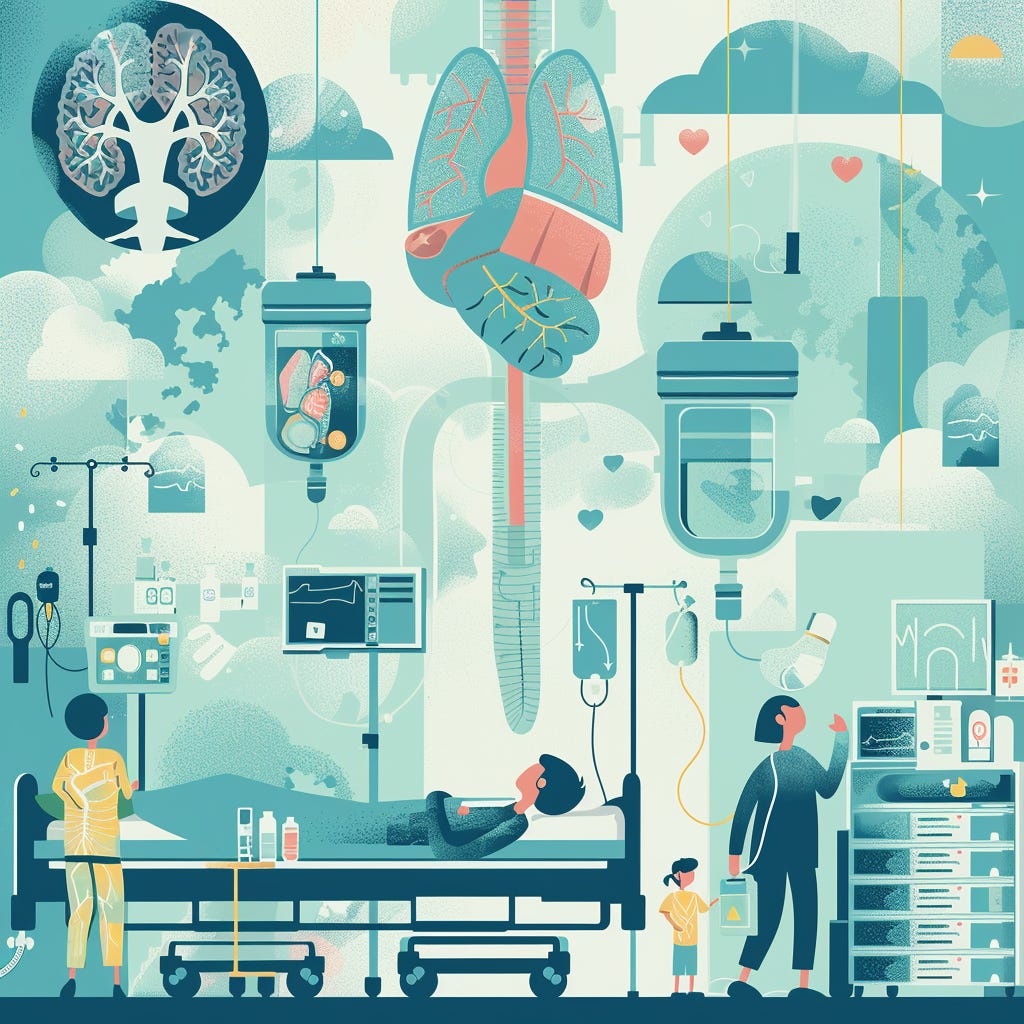In the tapestry of our modern world, where progress is often measured by technological advancements and economic prosperity, there exists a sinister undercurrent—a threat that lurks beneath the surface, invisible yet insidious in its impact. This threat, known as Endocrine-Disrupting Chemicals (EDCs), has quietly permeated our environment, infiltrated our bodies, and left a trail of devastation in its wake.
The Alarming Trends
Over the past seven decades, the prevalence of chronic diseases has skyrocketed, paralleling the exponential increase in the use and production of petrochemicals—a key component in the manufacturing of plastics. As global production of plastics, especially single-use plastics, continues to soar, so too does our exposure to these toxic compounds. With over 130 million Americans living in zones where industrial chemicals are stored, used, or produced, the scale of the problem becomes apparent.
The Stealthy Invaders: Understanding Endocrine-Disrupting Chemicals
Endocrine-Disrupting Chemicals, or EDCs, are substances that interfere with the normal functioning of hormones in the human body. From insulin, which regulates glucose levels, to testosterone, vital for metabolism and muscle mass, these chemicals disrupt the delicate balance of our hormonal systems. The consequences of EDC exposure can be profound, spanning from low birth weight and birth defects in utero to developmental delays, cancer, and cardiovascular disease later in life.
The Price of Progress: Uncovering the Dangers of Artificial Turf
In the world of sports, where athleticism and competition reign supreme, the use of artificial turf has become increasingly common. Yet, recent investigations have revealed a potential link between the chemicals present in artificial turf and a rare brain cancer called glioblastoma. Although causation is difficult to establish definitively, the level of petrochemical derivatives found in artificial turf raises serious concerns about the health risks posed to athletes and spectators alike.
The Forever Chemical: The Perilous Legacy of PFAS
Among the most concerning classes of chemicals are Perfluoroalkyl and Polyfluoroalkyl Substances (PFAS), also known as "forever chemicals" due to their persistence in the environment. Used in nonstick cookware, food packaging, and stain-resistant materials, PFAS have been linked to a myriad of health issues, including reduced fetal growth, cancer, and hyperlipidemia. Despite mounting evidence of their harmful effects, PFAS compounds continue to pervade our lives, prompting comparisons to the tactics employed by the tobacco industry to downplay the risks associated with their products.
The Insidious Threat of Phthalates and Bisphenols
Phthalates, commonly used as plasticizers to make plastics more flexible, and bisphenols, found in polycarbonate plastics and epoxy resins, pose significant health risks as well. From male reproductive toxicity and preterm birth to infertility and metabolic abnormalities, the dangers associated with these chemicals are far-reaching. Despite efforts to phase out Bisphenol A (BPA) due to its toxicity, alternative bisphenols with similar health effects are on the rise, highlighting the ongoing challenges in regulating these hazardous substances.
The Unequal Burden: Disparities in Exposure and Risk
While EDC exposure affects us all, certain populations face a disproportionately higher risk. Black women, Latinas, and women of color, in general, have been found to have significantly higher levels of EDCs in their bodies compared to non-Hispanic white women. Additionally, occupations such as healthcare workers, firefighters, and plastics production workers are among those at increased risk of exposure due to their proximity to industrial chemicals.
A Call to Action: Protecting Our Families and Future Generations
In the absence of stringent regulations and comprehensive safety testing, the responsibility falls upon us to safeguard ourselves and our loved ones from the perils of EDC exposure. From opting for organic foods and eco-friendly products to advocating for systemic change and supporting sustainable practices, there are steps we can take to mitigate the risks posed by these toxic chemicals. By educating ourselves and taking proactive measures, we can help create a safer, healthier environment for future generations.
A Personal Reflection: Navigating the Waters of Uncertainty
As I reflect on my own experiences growing up in the Bronx, I am haunted by memories of carefree days spent playing in the contaminated waters of the Bronx River. Two of the figures from those cherished memories have since passed away—one from cancer and the other from complications related to diabetes and hypertension. While I cannot definitively attribute their illnesses to environmental factors, the lingering doubts and uncertainties serve as a stark reminder of the potential dangers lurking in our midst.
As I look towards the future, I am filled with a renewed sense of determination to protect my children from the invisible threats that may lie ahead. While the road ahead may be fraught with challenges, I am committed to doing everything in my power to ensure that their beautiful memories remain untainted by the specter of illness and disease.
In closing, let us remember that the fight against EDCs is not just a battle for our own health and well-being, but a crusade to safeguard the future of generations yet unborn. By raising awareness, demanding accountability, and advocating for change, we can work together to create a world where the silent menace of EDCs no longer casts a shadow over our lives.
Dr. Hector Caraballo, MD, is a physician who gained invaluable insights into the art of healing and medicine through his own life-changing health crisis. In today's fast-paced world, Dr. Caraballo emphasizes the importance of mastering 'The Medicine of You', an approach that invites individuals to become data-driven about their health markers that can impact both lifespan and healthspan. Through his writing, he aims to empower people to take control of their health before a significant crisis occurs, using his own experience as a gift to help others navigate the complexities of health and well-being. Dr. Caraballo is the founder of Vital Essence Medica, an online medical consultation service leveraging regenerative, personalized, and functional medicine. He also serves as the Medical Director of IV Essence in San Antonio, Texas.










